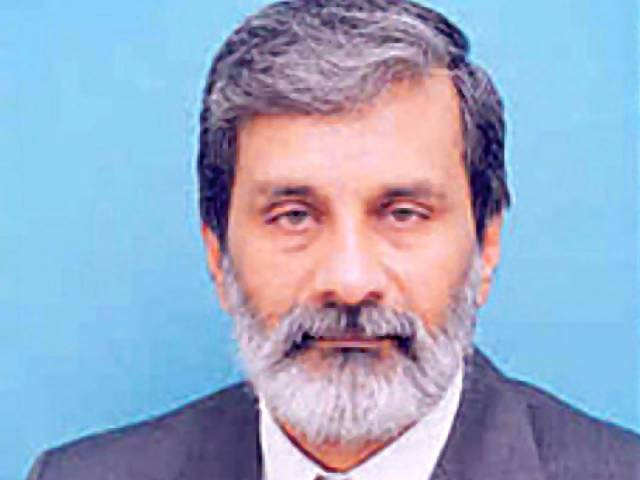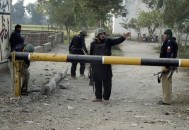Devolving powers: Justice Baqar ‘dissents’ against majority judgement
Says top court should interpret Constitution in a way it protects provincial autonomy

The Constitution prescribes well laid down role and limits of every organ of the state, Justice Baqar says. PHOTO: FILE
Justice Baqar, who belongs to the Sindh province, has dissented against the majority verdict against the Sindh government's claim of the ownership of three hospitals after the passage of the 18th Constitutional Amendment.
President Alvi sees no threat to 18th Amendment
Justice Baqar has authored a three-page note wherein it is stated that he went through the majority judges’ order, but was not able to persuade himself to concur with the same.
The order reads: “Pakistan is a Federal Republic. Our constitution has conferred certain enumerated powers on the federal government and the residuary powers on the provinces. The very spirit and essence of a federal Constitution is the distribution of legislative powers between the federation and the provinces.
“The subject of public health and public hospitals has throughout our legislative history remained exclusively with the provinces. Sometimes by enumeration in the provincial legislative list, and at times by way of residuary powers, and have never been with the federation.
‘NAO exists despite passage of 18th amendment’
“Under the 1973 Constitution also, which now, as a consequence of the 18th Constitutional Amendment, contains only one legislative list, being federal legislative list, also confers such powers and authority on the provinces, as the same again do not find place in the federal list, and therefore the subjects of public health and public hospitals fall within the legislative competence and executive authority of the provinces only.
"The federal legislature undoubtedly lacks legislative competence and executive authority in relation to the said subjects. Article 142(c) clearly prohibits the parliament from legislating on the subjects not mentioned in the federal legislative list."
The order says that indeed the federal legislative list through entry No 37 mentions "works, lands and buildings", vested in, or in possession of the federal government for the "purposes" of federation as federal subjects, however, such property and assets, as is obvious from the language of the said entry itself, should be catering for federal purposes and not for those of the provinces, and as noted earlier, public health and public hospital exclusively being provincial subjects, any of their facility/asset cannot be deemed as for federal "purposes" and can by no stretch of imagination be treated as federal subjects.
The relevance and significance of the "purpose" attributed to any property and/or asset is evident from the provisions of Article 274 of the present Constitution which provides that all properties and assets, which on the commencement of the Constitution, vested in the federal government, shall, in case they, on the commencing day, were to be used for the "purposes" of a provincial government, shall become properties of the said provincial government.
President signs 18th amendment bill
From the reading of entry No 37, and Article 274, it becomes abundantly clear that for vesting, even of properties and assets, the "purpose" catered for by such properties and assets is crucially relevant. It may be significant to note here that articles similar to Article 274 of the Constitution of 1973, are available in all of our earlier constitutions.
Justice Baqar said, “The Constitution prescribes well laid down role and limits of every organ of the state. Whereas Article 142(c) expressly curtails the limits of the federal legislature/government, which needs to be respected. In order to maintain and preserve the federal nature of our Constitution, our effort should be to interpret the constitutional provisions so as to preserve the provincial autonomy rather than to dilute the same.”
The five-judge larger bench, headed by CJP Mian Saqib Nisar and comprising Justice Umar Ata Bandial, Justice Maqbool Baqar, Justice Faisal Arab and Justice Ijazul Ahsan, heard a significant matter related to the devolution of federal hospitals to the provinces after the passage of 18th Constitutional Amendment.



















COMMENTS
Comments are moderated and generally will be posted if they are on-topic and not abusive.
For more information, please see our Comments FAQ